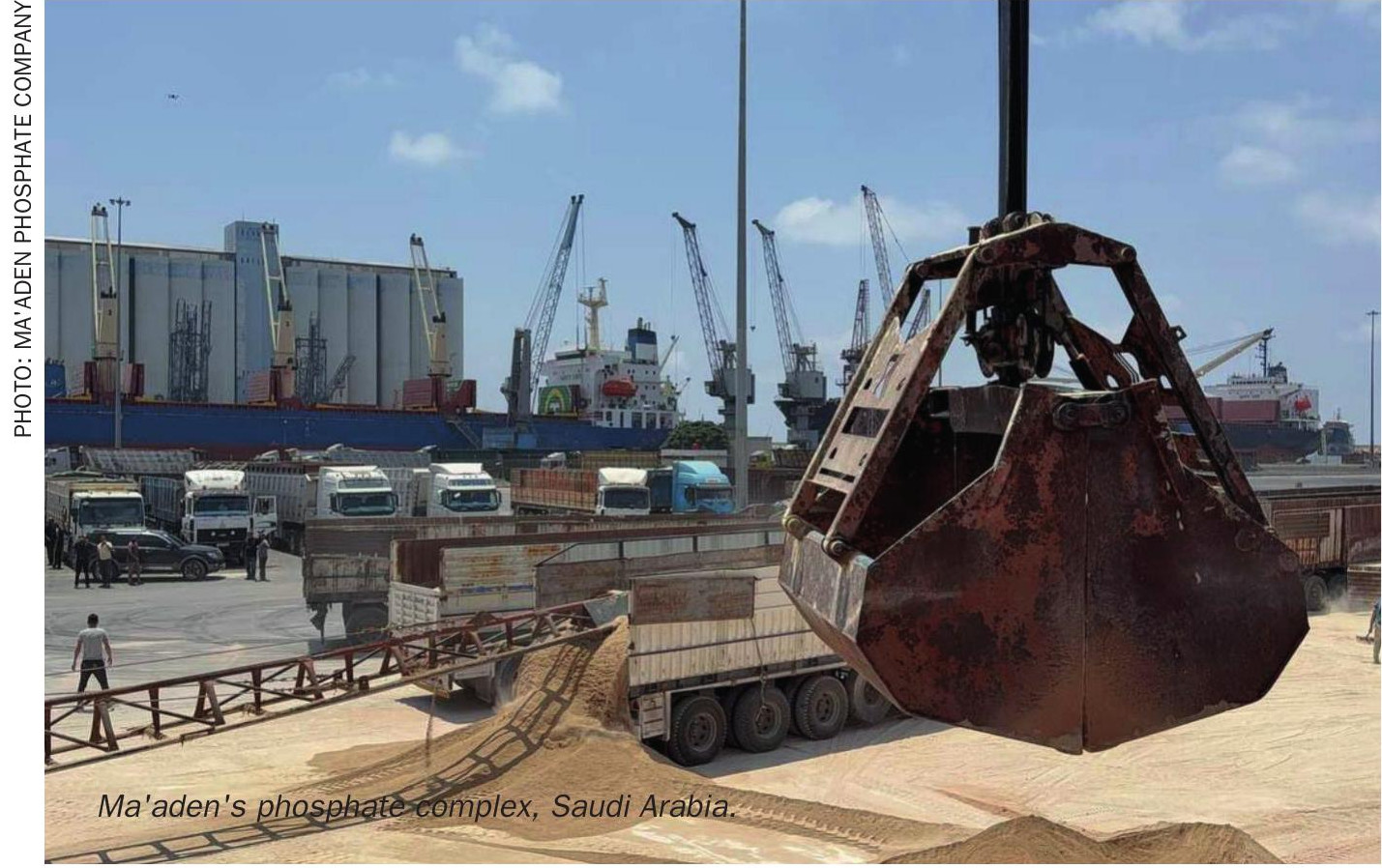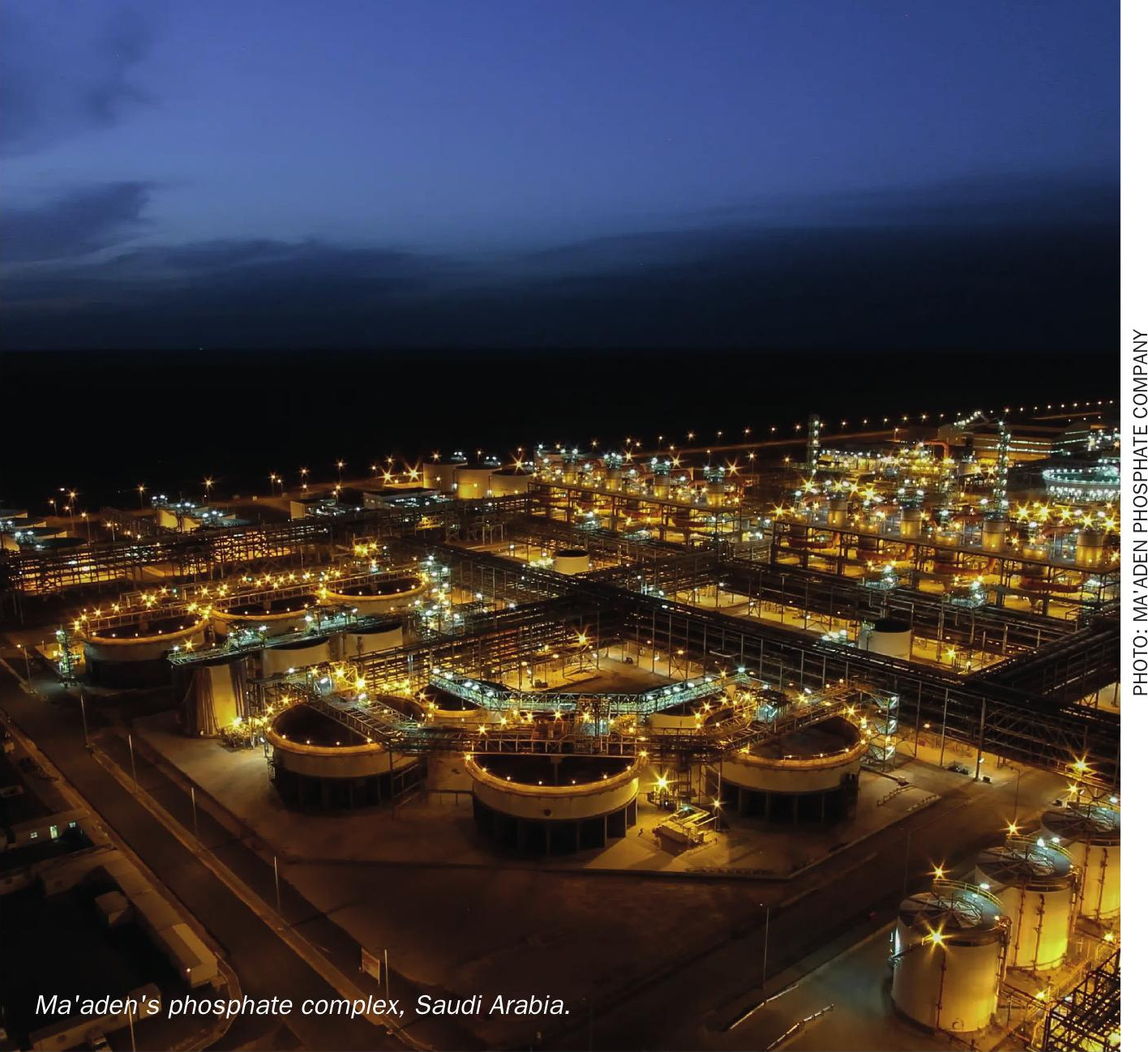Fertilizer International 516 Sept-Oct 2023

30 September 2023
Low-chloride fertilizers – a proven strategy for chloride sensitivity
LOW-CHLORIDE CROP NUTRITION
Low-chloride fertilizers – a proven strategy for chloride sensitivity
The use of low-chloride fertilizers is a proven strategy for managing chloride sensitivity in crops and avoiding excess chloride in soils. ICL offers a wide range of crop nutrient products for this purpose. Patricia Imas, agronomist at the company, outlines the main options.

Chloride (Cl) has been classed as an essential plant nutrient since the 1950s. It plays a valuable role in osmoregulation of the whole plant, photosynthesis, nutrient transport, and enzyme function. Chloride is also involved in stomata regulation, opening and closing guard cells on leaf surfaces.
Chloride – in common with other micronutrients – is only required in very small amounts. Excessive Cl levels can therefore be detrimental to certain plants, affecting crop yields and quality.
Symptoms of chloride toxicity in plants include leaf burn, stunted plant growth, leaf drop and nutrient imbalances. Damage from chloride toxicity is associated with:
- Crops irrigated with saline water and/or grown on saline soils
- High water tables and/or capillary movement of Cl into the root zone
- Poorly drained soils that receive runoff from other areas, especially in coastal zones
- Intrinsic crop-sensitivity to Cl.
Excess chloride is especially harmful to so-called chloride-sensitive crops. These include various fruits and vegetables (e.g., soft fruits, grapes and avocado), hops, tobacco and some ornamentals.
The use of low-chloride fertilizers is a proven strategy for managing chloride sensitivity in crops and avoiding excess chloride in soils. ICL offers a wide range of crop nutrient products for this purpose. These are designed to meet fertilization requirements while minimising the input of chloride. They include:
- Controlled-release fertilizers (CRFs)
- Water soluble fertilizers (WSFs) for fertigation and foliar application
- Polyhalite.
These low-chloride product options are described below.
Controlled-release fertilizers
Controlled-release fertilizers (CRFs) are granular products coated with a semipermeable membrane. These supply nutrients to plants throughout their entire growth cycle by gradually releasing these into the soil over a given time period. The targeted crop nutrients delivered by a one-time application of CRFs encourage uniform growth, maximise yields, and improve plant resilience. The other benefits of CRFs include greater nutrient use efficiency, reduced input costs, and lower leaching and volatilisation losses (which benefits the environment).
ICL offers fully coated NPK granules as part of its Agroblen product range. These low-chloride CRFs deliver nutrients over a fixed period (from 2-3 months up to 16-18 months) and are suitable for soil-grown, chloride-sensitive soft fruits, including strawberry, blueberry, raspberry and blackberry.
By applying only a few grams directly to the row or placed into the planting hole, Agroblen supplies nutrients in a controlled manner and according to plant needs. Because of this, NPK losses are significantly reduced, thereby ensuring more nutrients are available for plant uptake. The controlled release of nutrients over time also eliminates the labour, equipment and material costs associated with the multiple application of conventional granular fertilizers.
ICL also offers Agromaster – a CRF product line that combines both coated and uncoated NPKs – for all open-field, soil-grown vegetables that are sensitive to chloride, including crops with short growth periods such as lettuce. These powerful fertilizers partly deliver nutrients in an uncoated form for immediate take-up by plants to stimulate intensive growth. At the same time, they also provide NPKs in coated form. This prevents nutrient losses via run-off, leaching from light soils and/ or losses under heavy rainfall conditions.
The use of Agromaster products allows fertilizer rates to be reduced without affecting crop yields. They are also versatile and, by creating a buffer supply of nutrients in the soil, especially valuable in circumstances where fertigation is not possible.
Nonetheless, where possible, the ideal fertilization plan should always be based on fertigation with water-soluble fertilizers, as this precisely supplies nutrients according to both the age of the plantation and the phenological stage of the plant.
Water-soluble fertilizers for fertigation
ICL has a wide range of water-soluble fertilizers (WSFs) designed for both fertigation and foliar application with chloride-sensitive crops.
The Solinure product family are formulated for fertigation in greenhouse and tunnel systems. These chloride-free NPK products are made of highly pure raw materials, contain chelated trace elements, and are low in urea.
Solinure Polymarine is ICL’s newest addition to the Solinure family. This next generation, chloride-free fertigation product incorporates a seaweed extract and delivers both immediate and long-lasting crop nutrition. It functions by stimulating crop growth, improving stress tolerance, and supplying micronutrients in the necessary amounts.
ICL also offers a broad portfolio of fully water-soluble straight fertilizers under its Nova range. These include the chloride-free monopotassium phosphate (MKP) product Nova PeaK 0-52-34.
ICL is the world’s largest MKP manufacturer. Nova PeaK is widely used as a fertigation product by growers and is particularly popular in hydroponics. It can be applied flexibly due to its high phosphorus and potassium content and the absence of nitrogen. Nova PeaK is chloride-free, contains almost no impurities and has a very low salt index (150-300 ppm sodium content). It is entirely safe for foliar application or sprinkler irrigation and avoids the risk of phytotoxicity or leaf-burn.
ICL’s Nova PeKacid 0-60-20 is a patented water-soluble PK fertilizer with an acidifying effect. This chloride- and sodium-free product is safe to use, being provided in powder form, and is ideal for both open-field and soilless crops. Nova MagPhos 0-55-18+7MgO is another fully water-soluble, chloride- and sodium-free fertigation product option that combines magnesium with phosphorus and potassium. It is also suitable for foliar spraying, especially at the flowering stage.
Water-soluble fertilizers for foliar application
High chloride concentrations in foliar sprays can lead to leaf burn, discolouration, and other forms of damage in many chloride-sensitive plants. Chloride-free fertilizers are therefore preferred for foliar application to reduce these damage risks.
ICL’s Agroleaf Power range of foliar fertilizers combines high nutrient content with outstanding purity, including almost zero chloride levels. These water-soluble products dissolve quickly and completely and are offered in a wide range of macro and micronutrients formulations to match crop needs. They are designed to target individual growth stages and correct both nutrient imbalances and minor nutrient deficiencies. Additionally, Agroleaf Power products incorporates DPI and M-77 technologies for improved photosynthesis.
Agroleaf Crop is a preventive range of foliar products that are easy to incorporate within a complete fertilization programme. These chloride-free and fully soluble formulations are offered in special mixes of macro and micronutrients for different crops, such as cereals, maize, oilseed crops and potatoes. Agroleaf Crop products also reduce nutrient costs per hectare as they can be applied to leaves using a lower volume of spray. They are also compatible with a large number of plant protection products when tank mixed.

Finally, Nutrivant from ICL is a unique foliar fertilizer range available in crop-specific nutrient mixes. Products incorporate patented Fertivant technology that can break through the leaf cuticle. Foliar use of Nutrivant results in more even spread, faster penetration and longer lasting nutrient uptake.
Polysulphate
Polysulphate® is a unique multi-nutrient fertilizer rich in four key plant nutrients: sulphur, potassium, magnesium and calcium. It contains the natural mineral polyhalite and is exclusively mined in the UK by ICL.
Polysulphate is provided to growers in its natural state, being delivered directly from mine to field with no industrial processing. As a natural mineral fertilizer, it is widely approved for use in organic agriculture – holding organic certification in many countries internationally.
The low salt index and the very low chloride content of Polysulphate make it ideal and safe to use on even the most chloride-sensitive crops.





